Contracting Officer Podcast 2.0 Episodes
As former Federal Contracting Officers who have also walked in industry’s shoes, Kevin and Paul share their expertise and perspectives in support of the podcast’s mission: Make government contracting better, one contract at a time.
Never Miss An Episode
Skyway subscribers know the value of expert insight and support. Login or subscribe today!
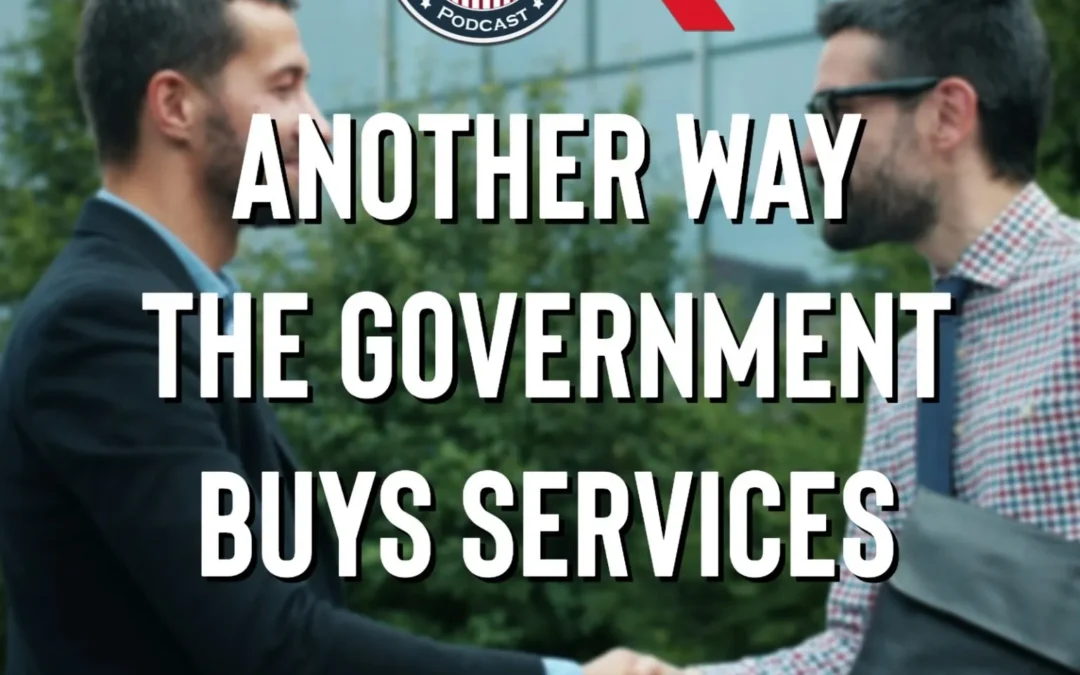
541 – Another Way the Government Buys Services
Government contracting is changing fast, and Intergovernmental Support Agreements (IGSAs) are part of that change. These agreements let the Department of Defense work directly with state and local...
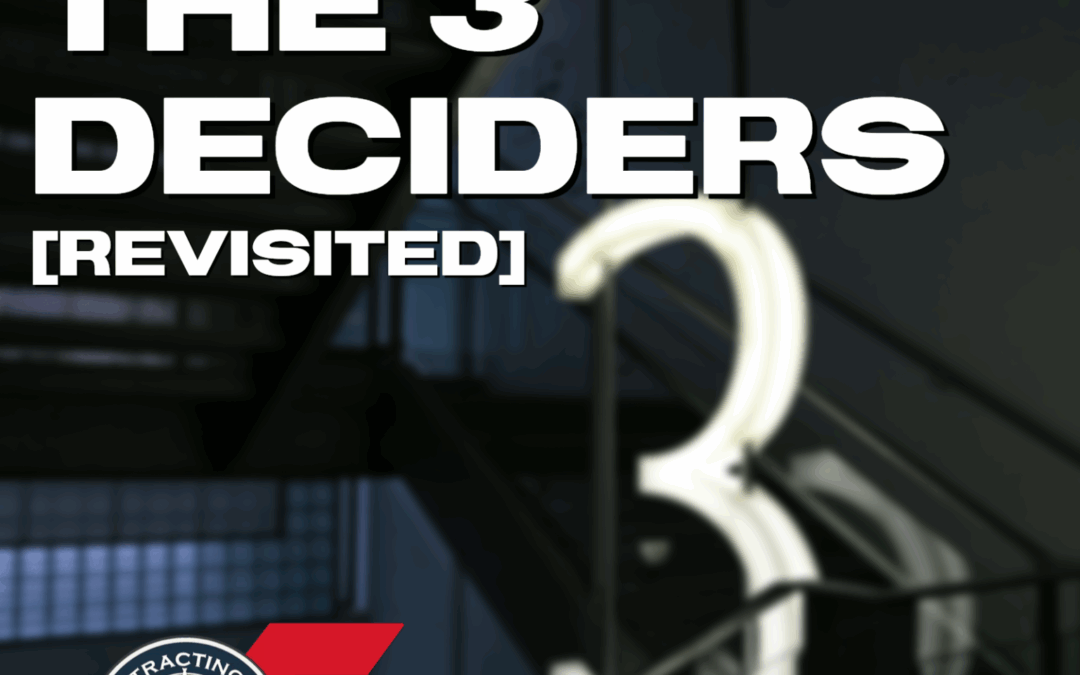
540 – The 3 Deciders (Revisited)
Government contracting can feel complicated, but one principle stays the same: every deal depends on three key roles—the Customer, the Economic Decider, and the Contracting Officer. We call them the...
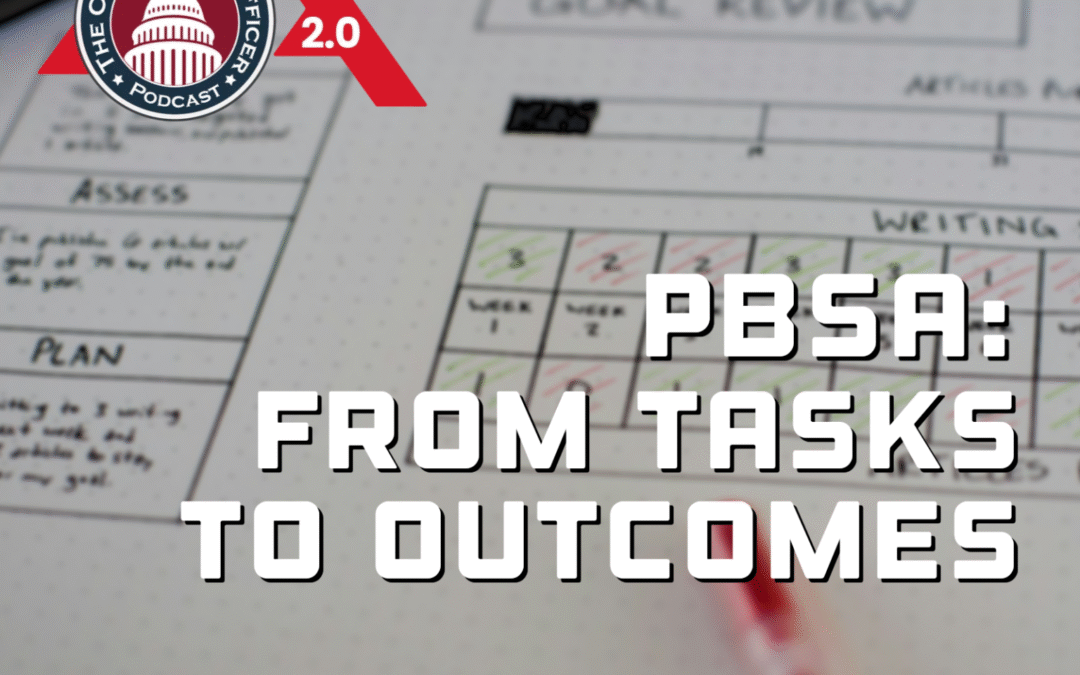
539 – PBSA: From Tasks To Outcomes
In this episode, Kevin and Paul talk about a key change in federal contracting—Performance-Based Service Acquisition (PBSA). PBSA focuses on results, not rules. Instead of telling contractors how to...
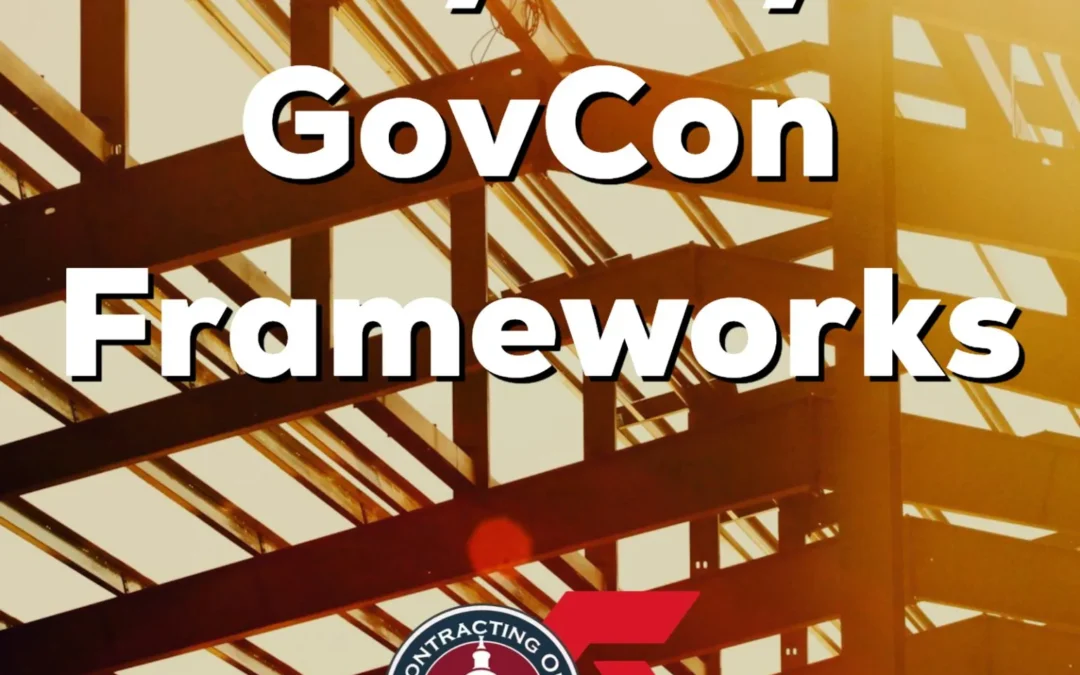
538 – Skyway GovCon Frameworks
Government contracting can feel confusing. Many people wonder who really makes the key choices. In this episode, Kevin and Paul focus on the Contracting Officer. This role is one of the three main...
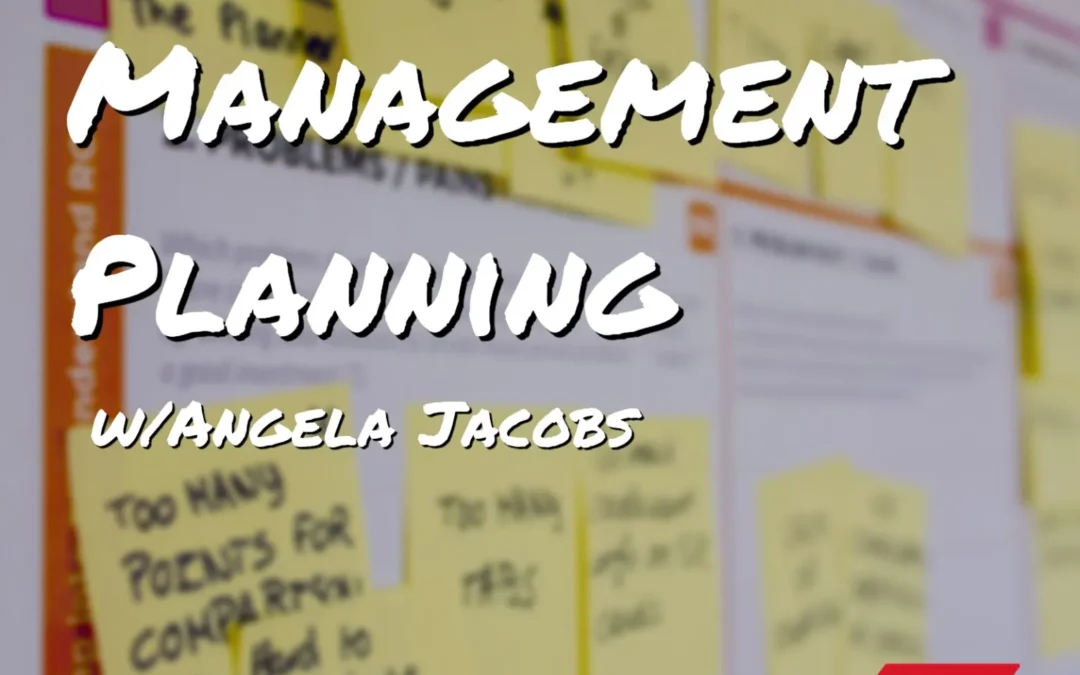
537 – Contract Management Planning (w/ Angela Jacobs)
In this episode, Kevin Jans talks about a key part of the contracting process—what happens after the contract is awarded. Many people think the job is done once the contract is signed. But the real...
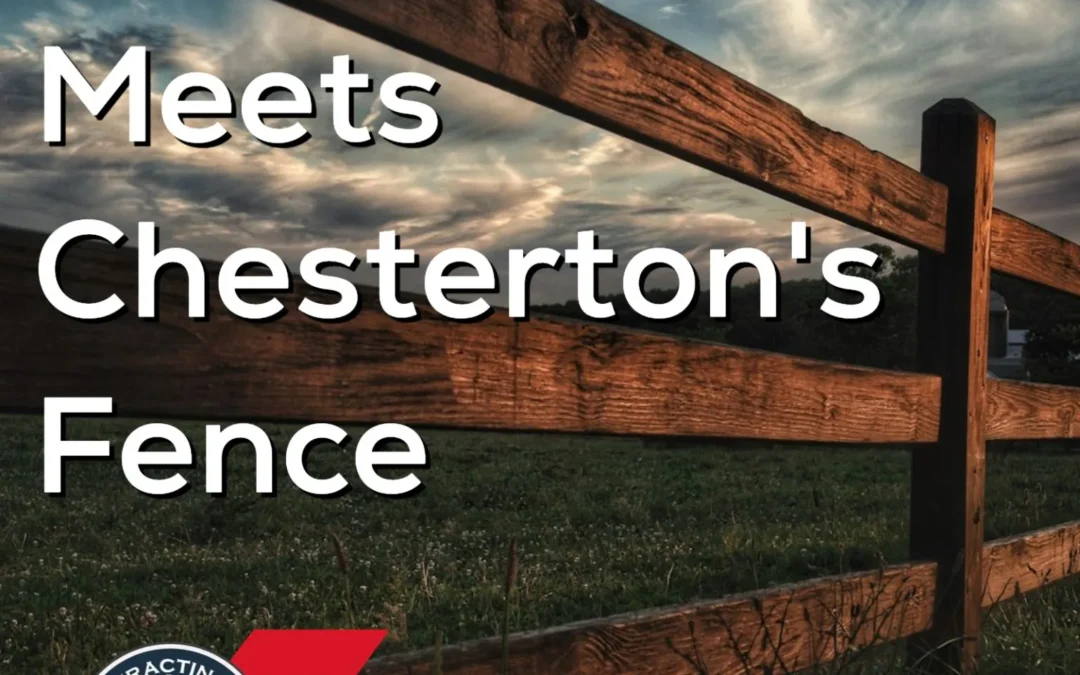
536 – GovCon Meets Chesterton’s Fence
Government contracting has many rules and steps. But do we ever ask why they exist? In this episode, we look at an idea that has lasted for almost 100 years: Chesterton’s Fence. It says, “Don’t take...

535 – Moving at the Speed of GovCon
Government contracting often feels slow. But is it really? In this episode, Kevin and Paul explore what “fast” means in the world of GovCon. They share real stories from both sides—buying and...

534 – Government Shutdown Planning
This episode is all about government shutdowns and how they affect contracting officers and contractors. Shutdowns are no longer rare. They happen often. In fact, this is the fifth one since we...

533 – 2025 Threshold Updates
In this episode, Kevin Jans and Paul Schauer talk about important updates to government contracting rules. Starting October 1, 2025, many dollar thresholds in the FAR are going up. These changes...

532 – The “Overhaul” of FAR Part 5
In this episode, Kevin and Paul explore the updated FAR Part 5. This part is now one of the “heavy hitters” in the FAR. That means it has a big impact on how the government buys things, even though...

Re-Release 223 – ShutDown Recovery
Skyway Acquisition is bringing back this episode because it still matters. Another government shutdown has happened, and Kevin and Paul talk about what that means. The effects go far beyond federal...

531 – The 6 Ps of Commerciality – Part 2 (with Troy Small)
We’re back with the second part of our series on the 6 Ps of Commerciality. If you missed the last episode, we talked about the first three Ps: Problem, Product, and Positioning. Be sure to check it...
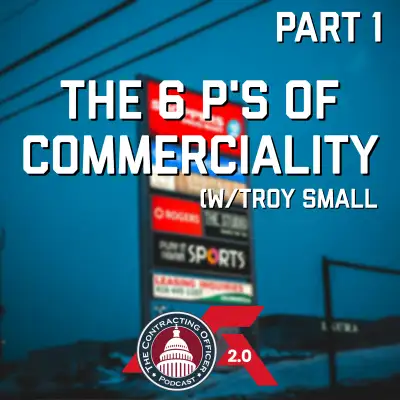
530 – The 6 Ps Of Commerciality Part 1 (w/Troy Small)
“The 6 Ps of Commerciality.” In this episode, host Kevin Jans talks about a key part of government buying—figuring out if something is “commercial.” The U.S. government prefers to buy products and...
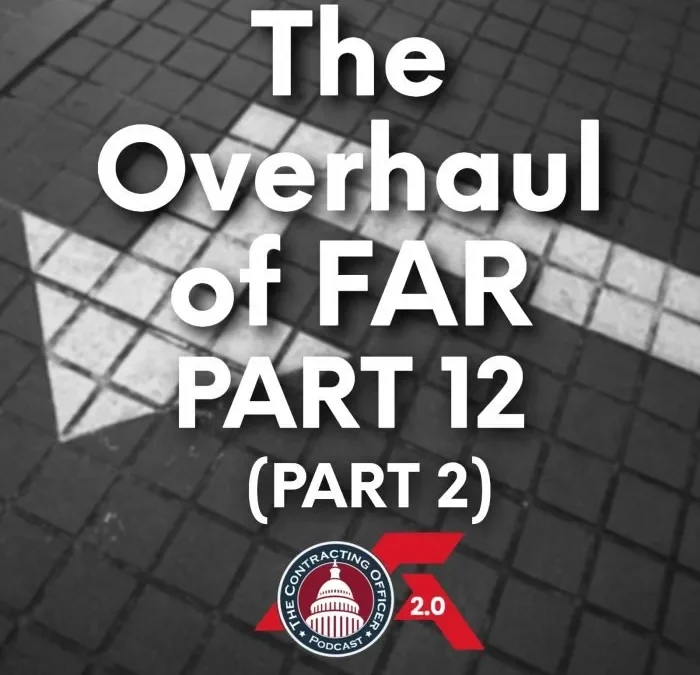
529 – The “Overhaul” of Part 12 (Part 2)
In this episode, Kevin and Paul continue the story of how FAR Part 12 is changing. The government wants to buy commercial products and services whenever possible. That’s smart—it saves time and...
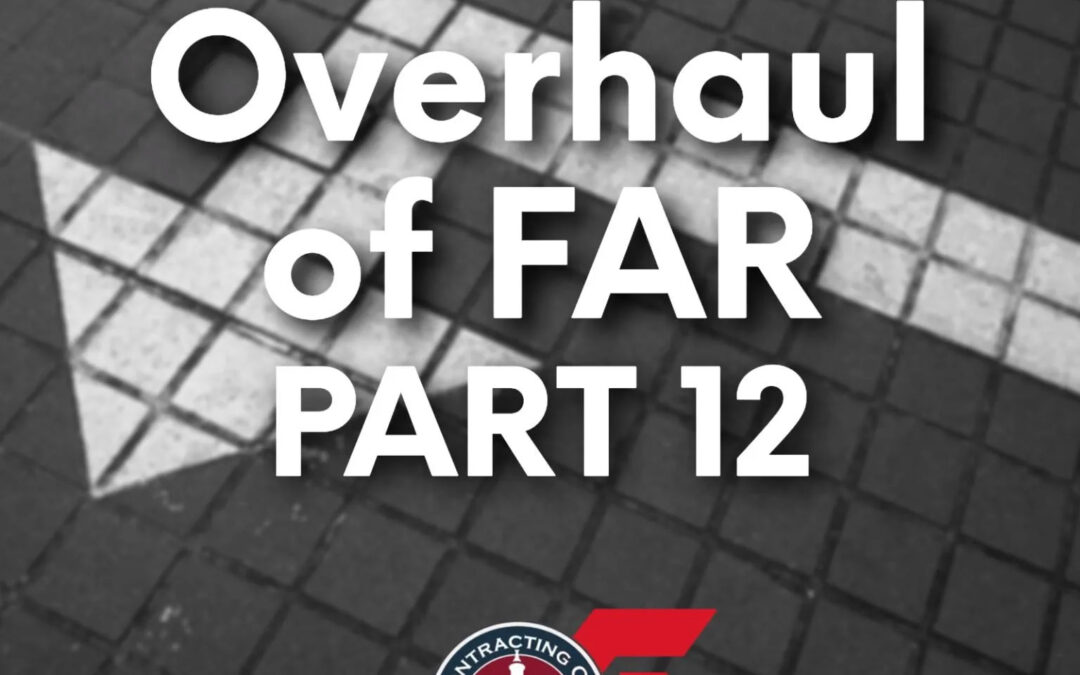
528 – The “Overhaul” of FAR Part 12
In this episode, Kevin and Paul talk about big changes to FAR Part 12. This part of the FAR covers how the government buys commercial products and services. The rules are being updated to make...

527 – Small Business Search (DSBS Update) – w/Shelley Hall
In this episode of the Contracting Officer Podcast, Kevin Jans and Shelley Hall talk about a major update that affects how the government finds small businesses. The old tool—Dynamic Small Business...

